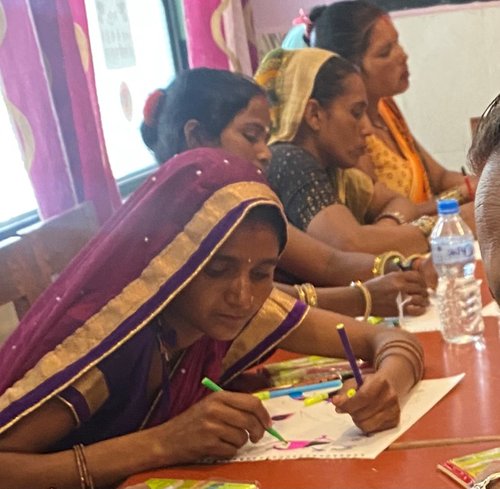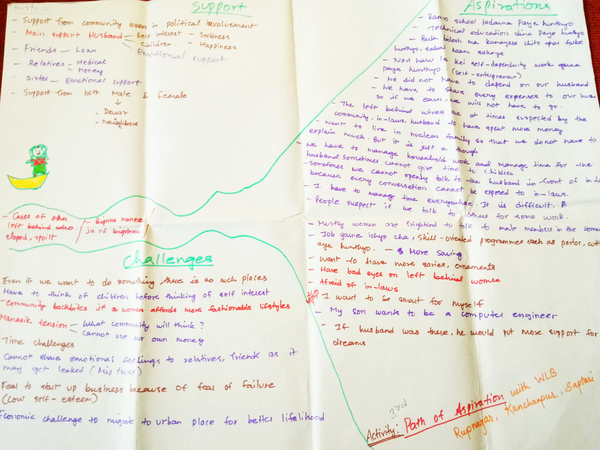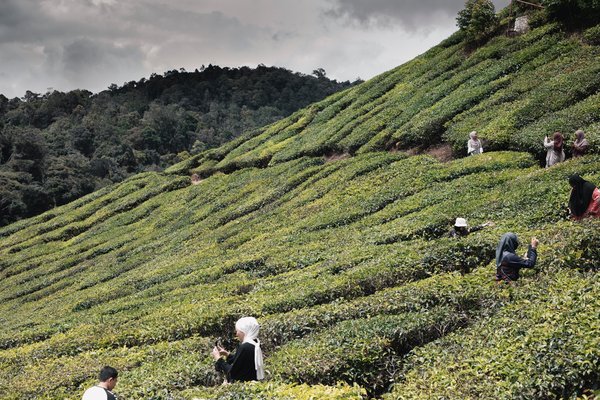This post was authored by Swastika Ghimire.
In the small town of Rajbiraj in the Saptari District, Nepal, a transformative three-day workshop was organised by MIDEQ Nepal (NISER), bringing together 108 wives of migrant workers. The workshop was organised in collaboration with the Women, Children, and Community Development Centre (WCCDC), along with the assistance of three local facilitators who provided translation services and helped identify participants.
The participants belonged to a marginalized group with limited socio-economic resources. The majority had not completed secondary education, and many were illiterate. Their cultural background was characterized by male dominance, with women traditionally covering their heads in front of their in-laws and showing respect by not addressing male figures, including their husbands, by their names. Early marriages were prevalent among the girls, and interestingly, when asked about their age, most participants referred to the seasons in which they were born, reflecting a lack of formal education.

The workshop started with an introduction session aimed at breaking the ice and establishing a comfortable environment for participants to interact. The primary objective was to explore and provide a platform for emotional expression from migrant workers' wives through the medium of art, specifically painting. Following the introduction session, the participants were provided with a variety of marker pens to convey their feelings about their husbands' migration through paintings. The artworks revealed profound emotions and aspirations.
The recurring theme of "houses" depicted their dreams of building their own homes using remittance money. Other prevalent elements included flowers, broken hearts, family, and portraits of their husbands. One participant coloured her husband entirely in orange, expressing her anger towards him for not sending money home and squandering his earnings on alcohol. Another depicted a withered flower with thorns, symbolizing their lives before their husbands embarked on foreign employment, contrasted with a vibrant flower with branches and stems, representing the improved lives they now lead. Some participants illustrated their desire to travel to different places hand-in-hand with their husbands. Others focused on the clothing they believed suited their husbands best, colouring them accordingly.
The workshop proved to be profoundly impactful. It seemed to provide a journey of self-discovery for the participants. Through art, they were able to express deep-seated emotions that are often concealed from others. Initially they hesitated saying they had never ever held a pencil in their hand- but as we encouraged them, it looked like the workshop had become a safe space where their voices were heard and their experiences validated. The workshop offered migrant workers' wives an opportunity to explore and articulate their emotions through the medium of art. By enabling the expression of their aspirations, frustrations, and desires, the workshop aimed to empower these women to share their innermost thoughts in a supportive environment.
The painting workshop was the first of a five-day long orientation workshop. The objective of the orientation was to support women to understand how migration of the husband is structured, life in the foreign country and how to deal with the emotional and social impact of their husbands being abroad while managing children and elderly. We hope that it will be a stepping stone towards fostering empathy, understanding, and further research on the experiences of migrant workers' wives, contributing to their well-being and social recognition.



